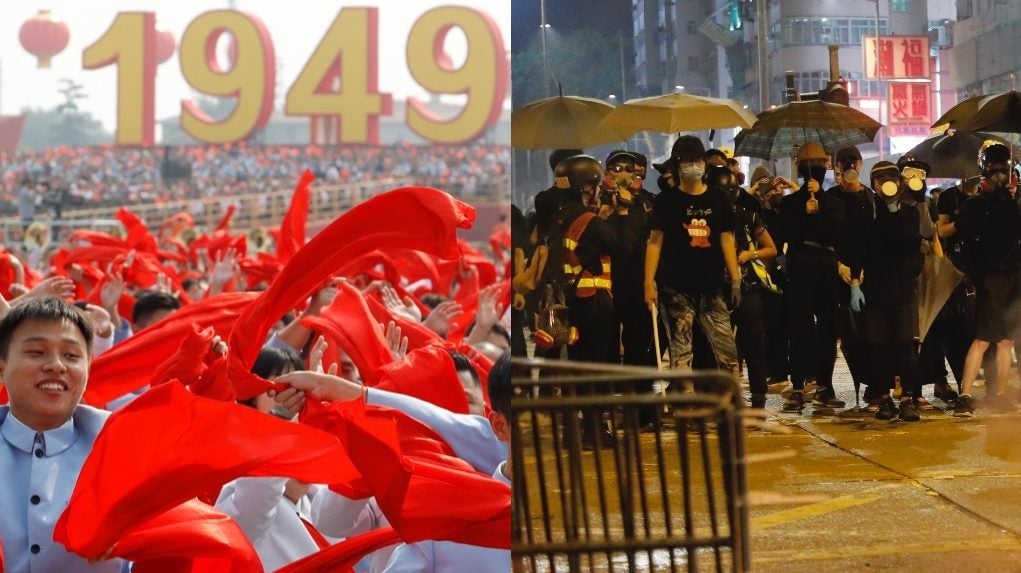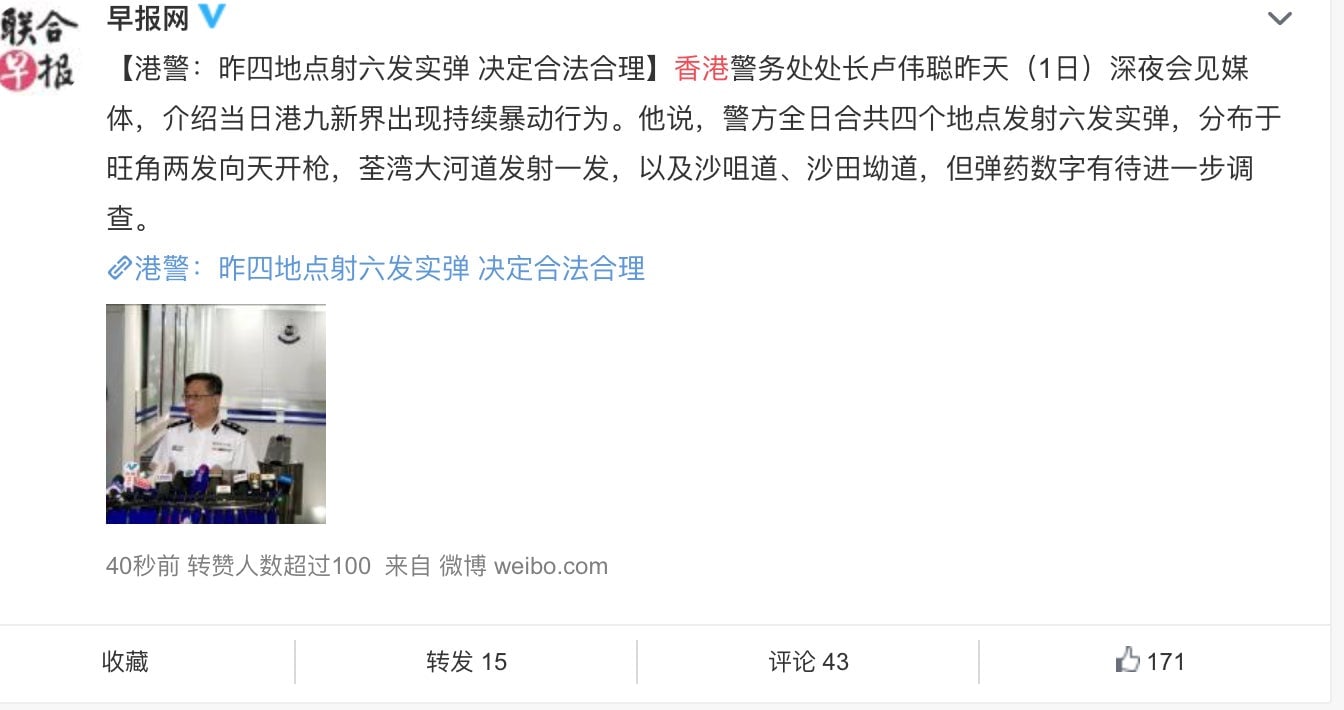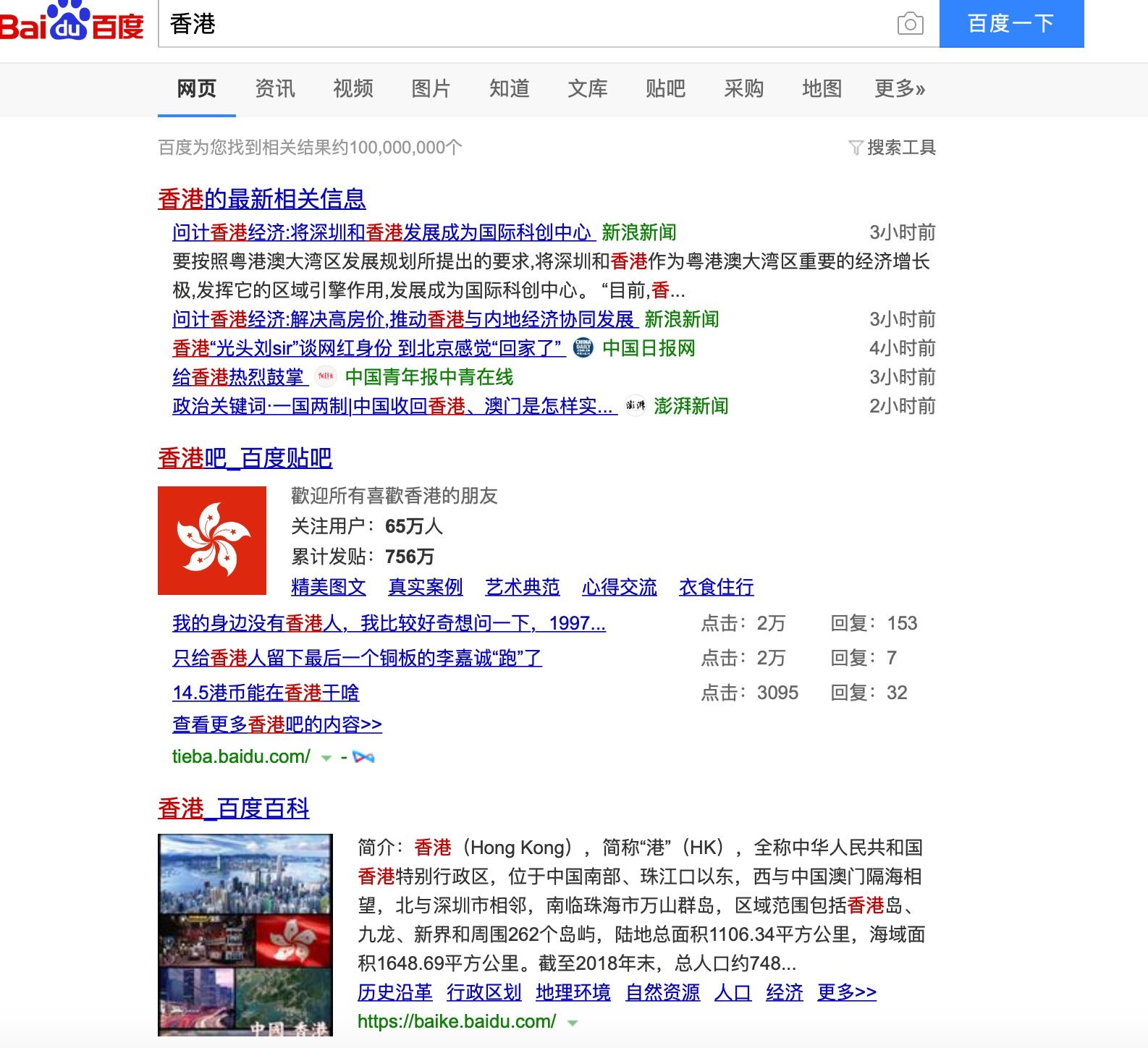The biggest thing that happened in China on its National Day is mostly invisible in China
The People’s Republic of China celebrated its 70th birthday on Tuesday (Oct. 1) with a grand military parade featuring over 15,000 soldiers marching in formation, and a giant portrait of Chinese president Xi Jinping, who told the country in a passionate speech that China’s rise is “unstoppable.” Despite Beijing’s efforts to showcase its strength to the world, global news reports out of China were dominated by a tragic turn in Hong Kong even before the capital’s massive evening fireworks display.


The People’s Republic of China celebrated its 70th birthday on Tuesday (Oct. 1) with a grand military parade featuring over 15,000 soldiers marching in formation, and a giant portrait of Chinese president Xi Jinping, who told the country in a passionate speech that China’s rise is “unstoppable.” Despite Beijing’s efforts to showcase its strength to the world, global news reports out of China were dominated by a tragic turn in Hong Kong even before the capital’s massive evening fireworks display.
The shooting of an 18-year-old high school student was the first in Hong Kong, even though police had fired live rounds in warning before. Hong Kong police have said the officer acted reasonably, and that a small group of police was facing an attack by protesters armed with metal bars. The student is said to be stable after being hit in his chest. Reports juxtaposed China’s celebrations against Hong Kong’s intense clashes between police and protesters who were out for a “day of mourning” the authoritarian nature of Communist China.
In China, the shooting of the teenager was pretty much invisible online.
While CGTN, the overseas arm of state-run CCTV, reported on the news with a video overlaid with dramatic music and English subtitles, the news couldn’t be found in the apps or on the homepages of China’s major domestic news platforms—Netease, Sina News, Tencent News and Sohu News, which both publish original reports and aggregate news.
The situation was similar on messaging app WeChat and microblog Weibo. Searches in Chinese for “Hong Kong” or “protester shooting”on Weibo this morning turned up one report that made it to the Weibo account of an Australian newspaper, and vanished in less than an hour while a reporter was trying to screenshot it. Singapore-based Chinese language newspaper, Lianhe Zaobao, managed to post a comment on Weibo from Hong Kong police commissioner Lo Wai-chung saying that opening fire was justified. This post appeared to have been deleted or hidden shortly after its publication, and cannot be found on Zaobao’s Weibo page anymore. A search for “protesters” only turned up some random comments by Weibo users, who complained about the inconveniences caused by the social movement in Hong Kong.

Instead, almost all the websites and apps featured coverage from state-owned outlets like Xinhua and Wen Wei Po about how Hong Kong had turned into “a sea of red,” with Hong Kong residents, and apparently even over 2,000 taxi drivers, passionately waving red Chinese national flags while chanting slogans such as “Long Live the Motherland!“
It’s the latest example of how China has tried to influence the narrative around Hong Kong since protests began in June, initially against a now-withdrawn extradition bill that would have allowed Hong Kong suspects to be sent to the mainland for trial. The protests have since developed to include broader demands such as universal suffrage for choosing the city’s chief executive, and continue to enjoy popular support despite increased violence by protesters, who have been depicted as “foreign-influenced” and “separatists” by Chinese media.
The lack of news on the shooting also highlights how effective China’s alternative version of the internet has been for shaping its citizens’ access to information—and therefore the nationalistic outlook of many of its people on global events. The country’s Great Fire Wall has blocked major international news websites, as well as Instagram, Facebook and Twitter. Chinese tech powerhouses have created a suite of apps that carry similar functions to the blocked ones—but carry out censorship in keeping with government guidelines. And virtual private networks, which had long been used to circumvent the fire wall, are becoming increasingly unstable amid Beijing’s crackdown on the tool in recent years.
Searches for the terms “Hong Kong”, “Hong Kong protesters/protests,” “Hong Kong gun shot,” “Hong Kong police fired a live round,” and “Hong Kong police” in Chinese and English, as well as a number of variations of the terms, also did not lead to content related to the episode on China’s biggest search engine, Baidu. Instead, the top five news articles on the night of Oct. 1 and morning of Oct. 2 on the platform about Hong Kong were about Beijing’s plans to develop both Hong Kong and its bordering city Shenzhen into tech innovation hubs, the float of Hong Kong that featured in yesterday’s parade, and a Hong Kong police officer Lau Chan-lei, who has been hated in Hong Kong since he pointed a shotgun at protesters in July, but has since received VIP treatment in Beijing, where he was invited to watch the parade.
